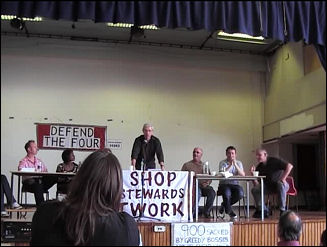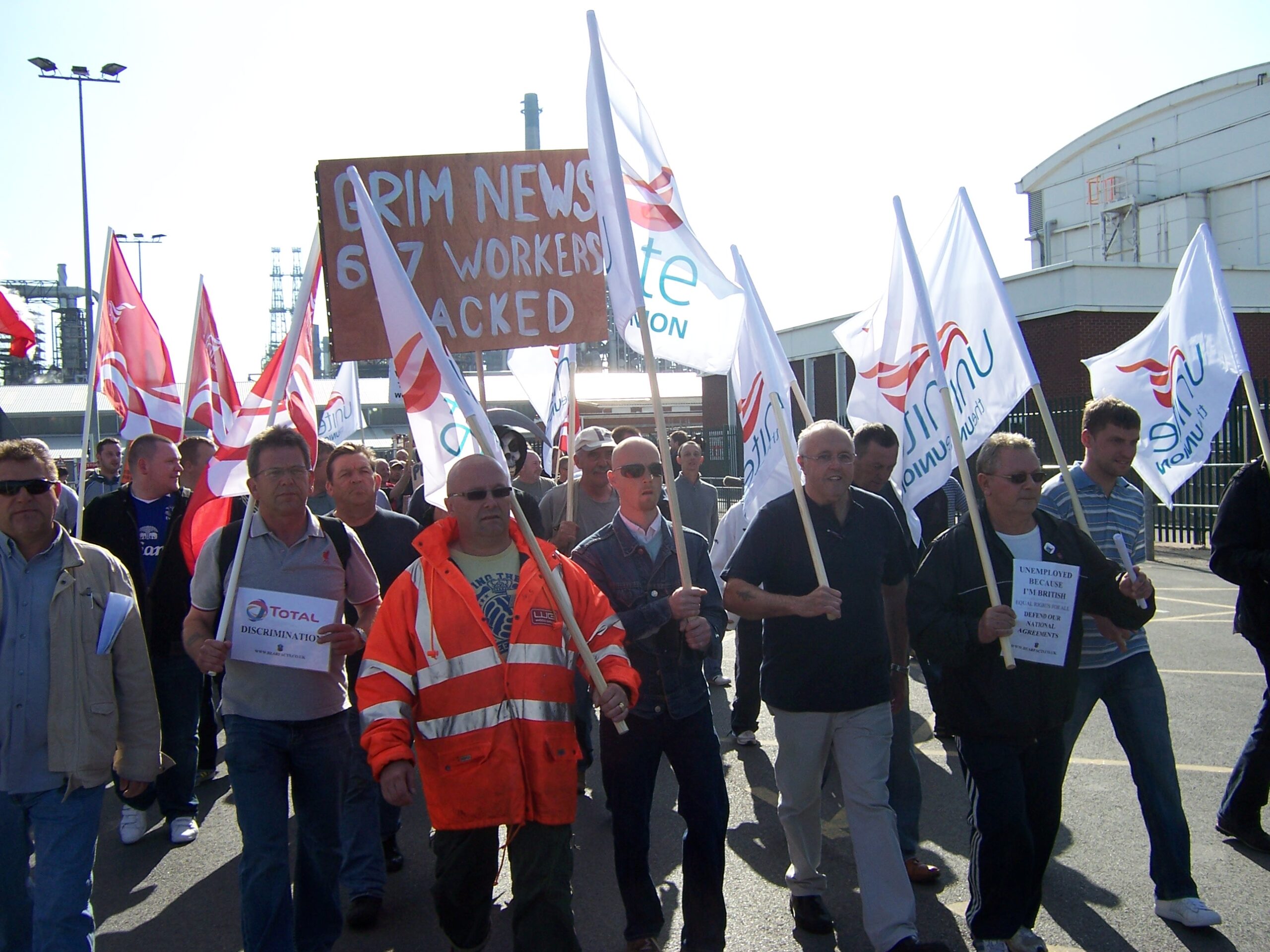This year’s TUC conference takes place in Liverpool. There could not be a greater contrast between the city’s working class, with their tremendous history of struggle and the TUC leaders, who lack any ability to lead a struggle today, yesterday or tomorrow.
Bill Mullins
In the 1980s, the Liverpool Labour council, under the leadership of Militant, the Socialist Party’s predecessor, became a byword for opposition to the Thatcher-led Tory government. It became the only working class led council to inflict a defeat upon the hated Thatcher government.
Socialist Party TUC meeting
Tuesday 15 September, 7:30 pm
The Liverpool bar, 14 James Street
(near James street station)
Speakers:
Brian Caton, general secretary POA
Chris Baugh, assistant general secretary PCS, personal capacity
Tony Mulhearn, Liverpool 47
Jane James, Socialist Party executive committee
The majority of the union leaders who sit on the general council of the TUC do not have the slightest idea of how to lead their members against the biggest onslaught on jobs and living standards facing working people for the last 50 years. They hang on to the shirt tails of a government who they hope against hope will listen to their pleas for some protection against the coming storm. They will wait forever because it is the Labour government who are at the forefront of these attacks, especially in the public sector.
But despite the lack of any real lead from the TUC, there have been signs that the working class is willing to fight. This year has seen tremendous battles in defence of jobs and basic trade union rights in Lindsey oil refinery, Visteon, Linamar and Vestas. What marks out all these disputes is that they were led from below. The workers took action without waiting to see if it was within the law first. That is the one of the main lessons from these disputes but for the leadership of the TUC it is a book sealed with seven seals.
The issues before this week’s TUC conference are the same as last year but with the extra twist that the recession was just beginning in September 2008, now it is here with a vengeance.
How will the unions respond to the attacks on their members’ jobs? Over 40,000 jobs are being lost every month. How can we fight back in spite of the vicious anti-union laws?
An indication of that will come when the resolution on the EU posted workers directive is discussed. It was this directive that allowed the Lindsey oil refinery bosses to bring in labour from abroad. Under the EU rules this labour did not have to be part of any national trade union agreement covering wages and conditions. The Lindsey workers ignored the anti-union laws and took action that brought victory twice in the first four months of this year.
The RMT in an amendment reminds the congress that the European court of justice added to the bosses’ ability to ignore trade union rights. It declared in effect that national agreements covering wages and conditions were “a restraint on trade”. The Lisbon treaty only adds to the power of the bosses against the unions.
A resolution from Unite on the jobs crisis has been strengthened by an amendment from the TSSA that points out that occupations are now part of the struggle against unemployment. This is a timely reminder to the union leaders that the battle for jobs cannot be hamstrung by the anti-union laws. While pressure must be put on the union leaders to ballot their members for action when necessary, and to lead the action in a determined way, direct action by workers is sometimes needed, in the face of opposition by the union leadership.
The shop workers’ union Usdaw, in reference to the closure of Woolworths last Christmas, says that in future the administrator should be made to “consult unions before they make any decisions”. Where was the Usdaw leadership at the time of the closure? Where was their clarion call to their members in Woolworths to fight for their jobs? We had a deafening silence from the union leadership.
Anti-union laws

Prison Officers Association protest outside the Royal Court of Justice, joined by Brian Caton, POA general secretary, photo Keith Dickinson
The Prison Officers Association (POA) says that it is time the TUC took on the anti union laws. They call for the TUC to “organise a series of street demonstrations… on selective days on which the trade unions will break the anti-union laws by taking a general strike”.
It is clear that after nearly three decades of these laws that something has to be done. However it would have been better if the POA resolution had included examples like Lindsey, where these laws have been ignored by workers moving into action and the bosses were unable to use the laws to stop them. Instead the TUC will oppose the resolution on the grounds that “it is against the law” because it baldly calls for general strike action.
A similar resolution from the POA was defeated last year. Nevertheless the POA has a proven record of defying the anti-union laws. It organised a national walk out of prison officers in August 2007 and it doesn’t need any lectures from the TUC leadership over illegal action.
Other important resolutions will deal with the threat of the BNP and what the unions should do about it. The PCS calls on the general council to organise a national demonstration to highlight the threat from the BNP and also calls for members of the BNP to be banned from jobs in the public sector. The POA were successful in not only kicking the BNP out from POA membership but they also got the Prison Service to ban them from jobs as well. It is the only part of the public sector to do so up to now.

PCS vice-president John McInally addresses the National Shop Stewards Network conference 2009, photo Socialist Party
The PCS have a very important resolution on the agenda to defend the public sector. In an amendment on pensions, PCS reminds congress that it was the united front against the attacks on the public sector pensions in 2005 that led to the government retreating. Then, unions organised co-ordinated national ballots for strike action. This kept intact the pension rights for three million public sector workers.
There is no doubt that the government is coming back for more and the PCS will make the same calls for unity across the public sector unions in defence of decent pensions.
The NUT is also calling for a TUC organised national demonstration against the effects of the crisis not only concerning education but “unemployment, no cuts in pay, pensions or public services”.
One of the final resolutions on the agenda is from the CWU about the crisis of political representation. It calls on the “General Council to convene, at the earliest opportunity, a conference of all affiliated unions to consider how to achieve effective political representation for our members.”
This is the first time that a resolution of this nature has found its way onto the agenda. It remains to be seen if it gets heard and genuinely debated at the TUC. But it is clear that, despite all the attempts by the right wing to keep it off the agenda, the call for the unions to break the link with the capitalist Labour Party is receiving more and more support.









